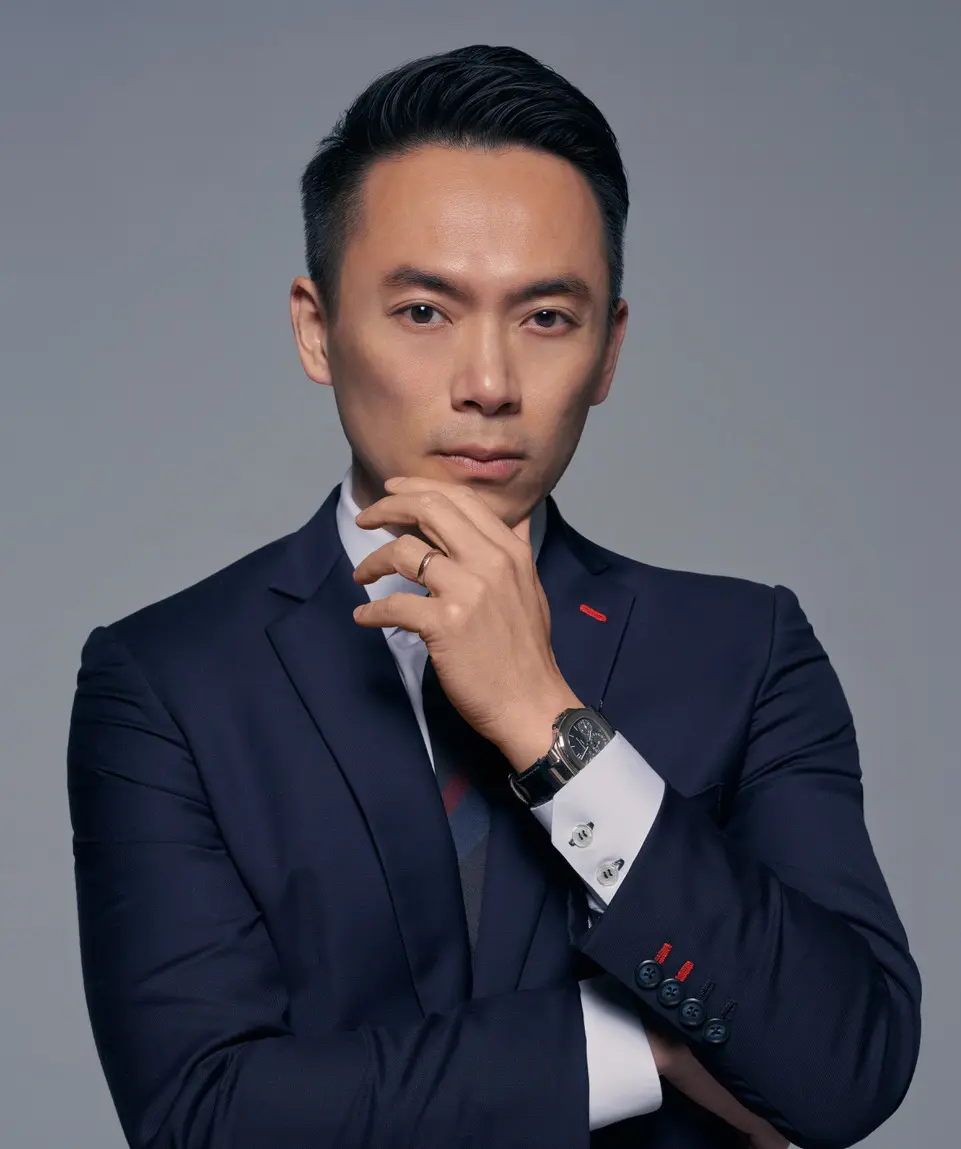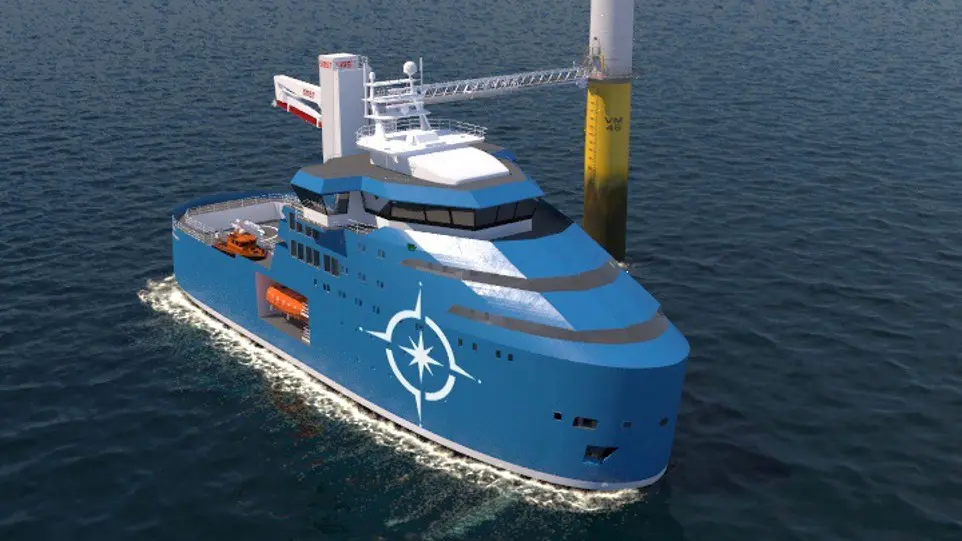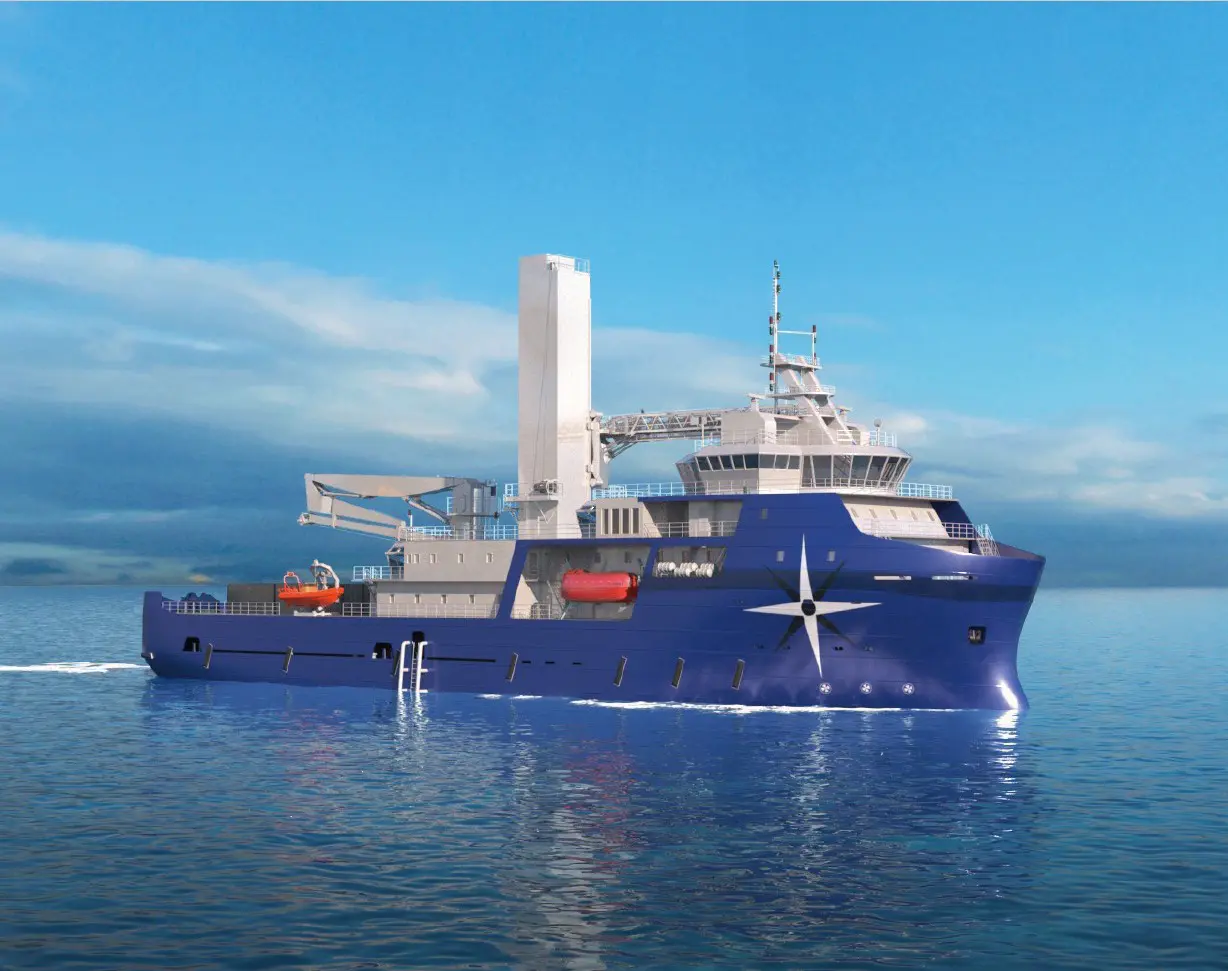In Southeast Asia, Asia, or even in the world, many oil-related companies were facing challenges during the oil crisis which started in 2014. We were fortunate to be able to successfully restructure and turn around the company in 2018 straight after the restructuring. The first thing I did was to come to Taiwan to understand the development and potential of the offshore wind market. I attended several conferences and met with people from different industries within the offshore wind ecosystem. I thought the offshore wind development policy was the right move, however, it has its own challenges.
Marching toward the sustainable and cleaner future Marco Polo Marine eyes in offshore wind

Marching toward the sustainable and cleaner future Marco Polo Marine eyes in offshore wind
 Sean Lee, CEO of Marco Polo Marine
Sean Lee, CEO of Marco Polo Marine
Interview by Xin-En Wu Written by Xin-En Wu, Mei-Hsu Shih, Po-Yu Lin
Marco Polo Marine Group (hereinafter referred to as Marco Polo Marine), headquartered in Singapore, is engaged in ship leasing, shipping, and shipbuilding business. When asked about the name of Marco Polo, Sean Lee, the CEO of Marco Polo Marine, said: "Actually, I asked my father this question. He named it that way because Marco Polo was an explorer. So he thought that it was a good name and was never used in Singapore."
The early years of Marco Polo Marine were focused on the tugs and barges operations. After Lee took over in 2003, he expanded the traditional shipping business to include offshore marine. He said, "When I took over Marco Polo Shipping in 2003 with 3 sets of tugs & barges, its major business was still in shipping rather than offshore marine. After taking over Marco Polo Shipping, Marco Polo Marine was established."
Actively investing in offshore wind
In January 2022, Marco Polo Marine announced its deep push into Taiwan's offshore wind market by acquiring Posh Kerry Renewables (PKRO), which mainly provides vessels for offshore wind services. In fact, Lee was initially not optimistic about Taiwan's offshore wind market.

"In Southeast Asia, Asia, or even in the world, many oil-related companies were facing challenges during the oil crisis which started in 2014. We were fortunate to be able to successfully restructure and turn around the company in 2018 straight after the restructuring. The first thing I did was to come to Taiwan to understand the development and potential of the offshore wind market. I attended several conferences and met with people from different industries within the offshore wind ecosystem. I thought the offshore wind development policy was the right move, however, it has its own challenges. I must admit that I was not optimistic at the time. It was not because of the policy, but considering the potential challenges in regard of the infrastructure and support," Lee indicates.
Lee continued to pay attention to Taiwan's offshore wind market despite the considerations. In 2019/20, Marco Polo's offshore vessels began to participate actively in several projects in Taiwan's wind farm. Only then, he found out that Taiwan's offshore wind development has accelerated faster than he anticipated.
The group's core business was primarily serving the oil and gas industry. In recent years, the industry has experienced many crises. In contrast, renewable energy is against traction with the global push for net-zero carbon emission. Led by the rapid expansion in wind development in Europe. This drive towards clean and sustainable energy prompted Lee to reflect, "The oil and gas industry is already mature, while renewable energy is still in a nascent stage. There is still much space for growth, which also means opportunities. Onshore wind development does not require vessels, but when it comes to offshore, specialized vessels are required to do the installation and O&M. The wind farm life cycle starts from conception to installation, to construction and O&M stage, we can apply our expertise and experiences in oil and gas to make the ecosystem larger and broader. " said Lee.
Cultivating local talents and launching the Taiwan Crew Academy program
"Whether it's in the oil & gas industry or wind industry, if you're in offshore, it requires a lot of specialized vessels. The offshore wind supply chain encompasses many scopes. Besides specialized vessels, it also requires the relevant expertise and knowledge." Lee pointed out that Taiwan's offshore wind farms are currently in the construction/commissioning phase. The offshore wind marine industry is relatively new in Taiwan, where it is more accustomed to merchant ships such as bulkers and containerships, unlike Singapore, Malaysia, Indonesia, Brunei, Vietnam, and other countries which have developed oil-related industries.
There is a cabotage law in Taiwan that requires foreign flag vessels to be manned with Taiwanese crew. Taiwan government announced that the foreign working vessels in Taiwan should be at least manned with one-third of the Taiwanese crew. Manning agents or shipowners who are working for offshore wind projects have poached crew members from traditional shipping companies because of the lack of local seafarers in the market. In the short term, this reflects the current status of crew recruitment in Taiwan. The Maritime Port Bureau has proposed an alternative indicating that developers can provide an education or training plan for the crew to obtain the relevant licenses in order to work in offshore wind farms.

"As a Company, we need to ensure sustainability in our business profile. When it comes to software, we need to ensure our employees are well-qualified and continue to be provided with training to upgrade their skills. I haven't seen anyone doing it at this moment. For sustainability, I need to consider what I can bring to the whole industry as an ecosystem. Setting up a crew training academy Program will benefit the local communities and the industry as a whole also. "
"Younger generation in Taiwan is more interested in offshore wind. The core spirit of the Crew Academy Program is to cultivate talents with practical skills so that the younger generation can have more access to the actual work field and gain professional knowledge from the industry. Furthermore, sufficient talents are critical in offshore wind supply chain development and in facilitating the local industry's successful transformation. "
Lee also believes that "the localization of industries is a necessary process". Any emerging industry will face a transition period, but in the current situation, the learning curve is too sharp. Managing the various issues such as lack of time and scarcity of mature technology depends on the flexibility and collaboration of the government and the industry players. Lee takes it as a challenge rather than an obstacle. "Localization means you have to have local content e.g., locally built vessels, local Taiwanese crew, etc. It requires long-term planning. It cannot be achieved overnight," Lee said.
Net-zero drives development into drones
O&M and logistics are crucial in offshore work, but at this moment, the transportation of personnel or equipment must still be carried out by working vessels, which is quite time-consuming. Lee said: "There are still some challenges to be resolved in the offshore part. One of the tasks is the time and distance required for transportation. Time is money. If you want to transport something to the offshore wind farm today, it is now commonly by CTV. Drones can play an important role in this respect. The transportation time is three hours, and the distance is about 50 kilometers. It takes almost a day to and fro by CTV. However, with technology, Drones can be an alternative option. We are collaborating with a partner to develop a drone system that can carry around 100 kilograms and travel 100 kilometers. "

The use of drones will bring a lot of efficiency to transportation. It would be of great help in transporting essential parts to the wind farms in the future. However, there are also limitations. Lee pointed out that the airspace restrictions in Taiwan need to be managed. Transparent communication with the Civil Aeronautics Administration and the Ministry of National Defense is also required. He confidently said: "I think that the application of drones in the wind industry has great potential for development in the future. Marco Polo's drone system is the first globally. We are willing to provide the services to our partners, hoping to make Taiwan, the first offshore wind field to deploy our drone system."
The call for a global drive to net zero by 2050 prompted Lee to see things differently. He is confident about the development of drone usage in the offshore wind space.
Lee further pointed out," For the drones, we will be utilizing batteries to operate. This will reduce carbon dioxide emissions. To top this, we also use clean design in our ships. For example, the design of our SOV is aimed at the reduction of carbon dioxide emissions with a goal of net-zero emission. We are proud to be the first company in the world to be able to Design, Build, Own, and Operate our offshore wind assets.”
More related articles
